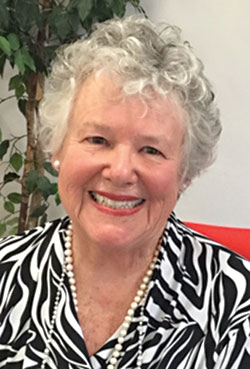
Getting out of Florida during the unbearably hot summers, escaping parenting duties for a few months, and being in the center of nature in all its glory in West Virginia, produced an aura in me of great happiness. It was as if I had morphed into a different person, an angel, able to float in air, wings had emerged that had sprouted out of my ribs and given me the winsome gift of flight.
Indeed, those summers I felt as if I were soaring high above the luscious green world beneath me with the sun at my back, the white fluff of clouds parting for me as I made my way through the sky.
In West Virginia, nestled between the river and mountains, at “Indian camp” spending blessed days amongst the laughing children, I was happy. No, I was ecstatic. I began to write poetry for fear that if I did not, I would burst from joy. Poetry is the language of writers who can no longer express emotion any other way. That first summer I wrote 100 poems. Any poet would tell you that is happy.
I began to take an interest in my son’s cabin counselor. I did know what attracted my interest, which perhaps was more of a concern. But I could not put my finger on exactly why but in the evenings as the campers were getting their showers and heading for their cabins, PJs and bed, I found myself making my way down to the little boy group of cabins.
The counselor, Peter, was always standing on duty as the boys ran back and forth, half naked from the cabins to their showers and back. I took to standing with him as the little boys flew by, giggling, shoving each other, towels zapping each other or flapping in the air … there could not be a happier scene at camp.
Everything seemed fine, perfectly normal, but I noticed how much Peter enjoyed the spectacle of the little boys. Another counselor might have found the chore of supervising boys’ showers dull, tiring or with an attitude of I can’t wait for this duty to be over so I can get with the women counselors for some after-hours fun.
But not Peter. What passed for a counselor that was dedicated and doing his duty well beyond the call, gave him an instant reputation that he was far more responsible than the other college staff.
I mentioned my observation to my husband who visited camp every so often by simply catching a plane while on business from Roanoke and flying over the mountains. He did not seem concerned.
As the days passed the staff naturally paired off, college students finding each other, husband-and-wife counselors happy together and since Peter did not connect to those of his own age, I ended up spending free time with him. He was a deep thinker, introverted, and a writer and we read poetry together and discussed theology that he was studying in college.
He was conservative in his theology whereas I was a Bishop Spong Episcopalian but it did not bother either of us that we held such disparate views of Christianity, and since so many religious people are unable to discuss their beliefs without insulting others or even becoming angry, our conversations were quite enjoyable.
I began to notice Peter’s eyes. They were deeply set, thickly lashed and a deep brown and they seemed to glow in some strange way as if they reflected high intelligence. I thought a priest with such eyes would be powerful as the light in his eyes lent him an extraordinary aura. As if he were not human — but a saint.
As we talked, I learned he had recently broken up with someone he dearly loved and he was still recovering from grief. The person was just 16.
One day as we were sitting on the bank of the river after a hard rain and the water had risen and it was flowing high and fast by us, he read a poem for me that he had written about his lost love.
I heard the beautiful lines of a terminated affair and the agony of loss suffered afterwards. There was a great span of silence after he finished. I was leaning against a tree and I felt the hard bark gouging into my skin and I saw how the sun cut through the network of leaves forming intricate patterns on the ground.
I could not speak. His poem described agonizing grief over a parted affair between two lovers. It was a perfect poem in every way: meter, theme, rhyme, controlled emotion. But for one thing.
A topic that 50 years ago could never be discussed comes back to me from the rustling curtain of memory. The pronouns in his poem were wrong.
(To be continued.)
© 2024



